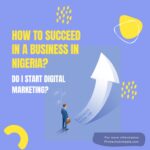Social media has become an integral aspect of our lives in the current digital era. Platforms like Facebook, Twitter, Instagram, and LinkedIn provide businesses with unrivalled chances to engage with their target audience thanks to their billions of active users globally. However, standing out in the vast sea of content can be challenging. That’s where effective social media advertising strategies come into play.
In this blog post, we’ll explore ten proven strategies that can help you boost your social media presence, engage your audience, and drive tangible results.
10 Best Social Media Strategies
Define Your Objectives
Before diving into social media advertising, it’s crucial to define your objectives. Are you looking to increase brand awareness, drive website traffic, generate leads, or promote specific products or services? By clearly outlining your goals, you can align your advertising efforts and measure success more effectively.
Know Your Audience
Understanding your target audience is the key to successful social media advertising. Conduct thorough market research, and analyse the demographics, interests, and behaviour patterns of your potential customers. This knowledge will enable you to create tailored and relevant content that resonates with your audience, increasing the chances of engagement and conversion.
Leverage Influencer Marketing
In the world of social media, influencer marketing has changed the game. Partnering with influencers who align with your brand values and have a significant following can amplify your reach and enhance credibility. Collaborate with influencers to create authentic and engaging content that showcases your products or services. Their endorsement can drive brand awareness and encourage audience interaction.
Harness The Power Of Video
Video content creation continues to dominate social media platforms, grabbing users’ attention and increasing engagement rates. Invest in high-quality videos that tell compelling stories, showcase product features, or offer valuable information. Consider live streaming, behind-the-scenes glimpses, or user-generated content to add authenticity and encourage user participation.
Optimise Ad Formats And Targeting
Every social media platform offers a variety of ad formats to suit different objectives. Experiment with formats like image ads, carousel ads, video ads, or stories to find what resonates best with your audience. Additionally, utilise advanced targeting options provided by the platforms to reach the right audience based on demographics, interests, location, and behaviour, ensuring your ads are seen by your target audience.
Encourage User-Generated Content (UGC)
User-generated content is a potent tool for increasing engagement and trust. Encourage your audience to share their experiences, reviews, and photos with your products or services. Run contests, challenges, or giveaways that incentivize users to create and share content related to your brand. UGC not only increases brand visibility and brand consistency but also generates a sense of community around your brand.
Invest In Social Listening
Social listening involves monitoring conversations about your brand, industry, or relevant topics on social media platforms. By understanding what your audience is saying, you can gain valuable insights, identify trends, and adapt your advertising strategies accordingly. Responding to customer feedback promptly and authentically shows that you value their opinions and fosters positive relationships.
Retargeting And Remarketing
Retargeting and remarketing are effective techniques to re-engage users who have already shown interest in your brand or visited your website. By placing pixels or tags on your website, you can track user behaviour and show targeted ads to those who have already demonstrated intent. This strategy keeps your brand top of mind and encourages conversions.
A/B Testing And Analytics
Continuous optimization is essential for social media advertising success. Implement A/B testing to experiment with different ad creatives, copy, or targeting strategies. Analyse the results using the platforms’ data analytics tools or third-party solutions to identify what works best for your audience. Use these insights to refine your campaigns and improve performance over time.
Engage And Interact
Social media is not a one-way street; it’s an opportunity to build meaningful connections with your audience. Respond promptly to comments, messages, and mentions. Encourage discussion, pose inquiries, and participate in pertinent conversations. By actively engaging with your audience, you foster loyalty, gain valuable feedback, and humanise your brand.
Latest Trends In Social Media Marketing
Authenticity And Transparency: Consumers are increasingly seeking authenticity from brands. They want to connect with real stories, genuine experiences, and transparent practices. Brands that can demonstrate authenticity and transparency through their social media content and interactions are likely to build trust and loyalty with their audience.
Short-Form Video Content: Thanks to apps like TikTok and Instagram Reels, the popularity of short-form video output has skyrocketed. Brands are leveraging these platforms to create engaging and entertaining video content that captures attention in a brief period. The key is to create visually appealing, concise, and highly shareable videos that resonate with your target audience.
Social Commerce: Social media platforms are increasingly integrating e-commerce features, allowing users to make purchases directly within the app. From Instagram’s Shopping Tags to Facebook Marketplace, social commerce is simplifying the purchasing process and offering a seamless shopping experience. Brands that optimise their social media profiles for e-commerce and leverage these features can drive more conversions and sales.
Influencer Partnerships: Influencer marketing continues to be a powerful strategy for brands to reach and engage their target audience. However, there has been a shift towards micro-influencers and nano-influencers who have smaller but highly engaged followers. These influencers often have niche expertise and can deliver more authentic and relatable content to their audience.
Social Listening and Customer Engagement: Social listening, the practice of monitoring and analysing social media conversations, has become essential for understanding consumer sentiment, identifying trends, and improving customer engagement. Brands are using social listening tools to proactively respond to customer queries, complaints, and feedback, fostering stronger relationships and resolving issues in real time.
Augmented Reality (AR) And Virtual Reality (VR): AR and VR technologies are gaining traction in social media marketing. Brands are leveraging these technologies to create immersive experiences that allow users to interact with products virtually, try on makeup, test furniture placements, or even attend virtual events. AR filters on platforms like Instagram and Snapchat also offer fun and engaging ways for brands to connect with their audience.
User-Generated Content (UGC): User-generated content remains a valuable asset for social media marketing. UGC helps build social proof, authenticity, and community around a brand. Brands encourage their audience to create and share content related to their products or services, and then feature the best UGC on their social media profiles. This not only increases engagement but also strengthens the bond between the brand and its customer segmentation.
Stories And Ephemeral Content: Stories, available on platforms like Instagram, Facebook, and Snapchat, have become increasingly popular for sharing content that disappears after 24 hours. Brands are utilising stories to provide behind-the-scenes glimpses, share time-sensitive offers, conduct polls, and showcase more authentic, casual content. Leveraging stories allows brands to stay top of mind and connect with their audience in a more personal way.
Social Causes And Purpose-Driven Marketing: Consumers today are passionate about social causes, and they expect brands to take a stand on relevant issues. Purpose-driven marketing, where brands align with social and environmental causes, has gained momentum. Brands that authentically demonstrate their commitment to social responsibility and make a positive impact are likely to resonate with consumers and attract loyal advocates.
Privacy And Data Protection: With increasing concerns about privacy and data protection, social media platforms are implementing stricter regulations. Brands must prioritise privacy in their social media marketing strategies, ensuring compliance with regulations like the General Data Protection Regulation (GDPR) and taking steps to protect user data. Transparent data practices and clear communication regarding data usage are essential to maintain trust with the audience.
By embracing these latest trends, brands can stay ahead in the competitive social media landscape, connect with their target audience more effectively, and achieve their marketing objectives. It’s important to continually adapt and experiment with these trends while aligning them with your brand’s unique voice and values.
The Power Of Social Media: How The Right Strategy Benefits Your Business
Increased Brand Visibility
Having a strong social media presence ensures that your brand is visible to a wider audience. By creating compelling content and engaging with your followers, you increase your brand’s exposure and reach potential customers who may have otherwise been unaware of your offerings. Social media platforms provide an opportunity to showcase your brand’s personality, values, and unique selling points, creating a lasting impression in the minds of your target audience.
Enhanced Audience Engagement
Social media allows for direct and real-time interaction with your audience. Through engaging posts, informative videos, and interactive content, you can foster meaningful connections with your customers. By actively responding to comments, messages, and mentions, you demonstrate that you value their feedback and opinions, creating a sense of community and loyalty around your brand. This community engagement also provides valuable insights into your customers’ preferences, allowing you to tailor your products or services accordingly.
Targeted Advertising
The capacity to precisely target particular audiences is one of the biggest benefits of social media marketing. Platforms like Facebook and Instagram offer advanced targeting options based on demographics, interests, behaviours, and even location. This means you can ensure your content is seen by those who are most likely to be interested in your business. Targeted advertising not only maximises the efficiency of your marketing efforts but also helps generate higher-quality leads, resulting in a greater return on investment.
Increased Website Traffic And Lead Generation
An effective social media strategy can drive a significant amount of traffic to your website. By strategically sharing links to your website or blog posts, you can attract visitors who are interested in learning more about your products or services. Additionally, incorporating lead generation tactics such as offering exclusive content, free resources, or contests can help capture valuable contact information from potential customers, expanding your email list and nurturing leads for future conversion tracking.
Brand Authority And Thought Leadership
Consistently sharing valuable and insightful content on social media establishes your brand as an authority in your industry. By positioning yourself as a trusted source of information and expertise, you can build credibility and gain the trust of your target audience. Thought leadership not only strengthens your brand’s reputation but also attracts potential customers who see you as a reliable resource, increasing the likelihood of conversions and long-term loyalty.
Competitive Advantage
In today’s competitive landscape, a strong social media presence can give your business a significant edge. If your competitors are actively engaging with customers, sharing valuable content, and building an online community, you must do the same. A well-executed social media strategy allows you to differentiate your brand, showcase your unique value proposition, and stay top of mind with your audience, ultimately outshining your competitors.
Valuable Insights And Analytics
Social media platforms provide robust analytics and insights that can help you make data-driven decisions. By analysing metrics such as engagement rates, reach, impressions, and audience demographics, you gain valuable insights into the performance of your content and campaigns. This data allows you to fine-tune your strategy, optimise your messaging, and identify areas for improvement, ensuring that your efforts align with your business goals.
Best Social Media Marketing Platforms For A Business
The best social media marketing platforms for a business depend on various factors, including the target audience, industry, and marketing objectives. Here are some popular platforms that businesses commonly leverage:
Facebook: With over 2.8 billion active users each month, Facebook has a sizable user base. It is suitable for businesses targeting a wide range of demographics. Facebook provides robust advertising options, audience targeting capabilities, and tools to build a brand presence through business pages, groups, and content sharing.
Instagram: Known for its visually appealing content, Instagram is ideal for businesses focused on the Visual appeal of storytelling and engaging younger audiences. It offers features like Stories, Reels, and IGTV for creative and interactive content sharing. Instagram also provides advertising options and influencer marketing opportunities.
Twitter: Twitter is a real-time platform that facilitates concise and immediate communication. It is suitable for businesses aiming to engage with audiences interested in news, trends, and quick updates. Twitter offers advertising options, hashtags usage, and the ability to interact directly with customers through replies and mentions.
LinkedIn: Targeting professionals and B2B audiences, LinkedIn is a powerful platform for networking, industry-specific content sharing, and recruitment. It offers advertising options, company pages, and groups for thought leadership and business networking opportunities.
YouTube: As the leading video-sharing platform, YouTube is ideal for businesses with video content marketing strategies. It allows businesses to create and share video content, engage with viewers through comments, and leverage paid advertising options to reach a broad audience.
Pinterest: Pinterest is a visual discovery platform where users find inspiration and ideas. It is suitable for businesses in industries such as fashion, home decor, food, and lifestyle. Pinterest offers advertising options and allows businesses to showcase products through visually appealing pins.
TikTok: TikTok is a rapidly growing platform known for its short-form videos and younger user base. It provides an opportunity for businesses to create engaging and entertaining content to reach Gen Z and millennial audiences. TikTok offers advertising options and influencer collaborations.
It’s important to research and understand your target audience’s preferences and behaviour on different platforms to select the most suitable ones for your business. It’s also beneficial to have a consistent brand presence across multiple platforms to reach a broader audience and diversify your social media marketing efforts.
Conclusion
Incorporating effective strategies for social media advertising can significantly impact your brand’s visibility, engagement, and ultimately, your bottom line. By defining your objectives, understanding your audience, harnessing the power of video, leveraging influencers, and utilising advanced targeting options, you can drive maximum results.
Embrace the power of social media, stay updated with the latest trends, and adapt your strategies to meet the evolving needs of your audience. With persistence, creativity, and data-driven optimization, your social media advertising efforts will yield remarkable success.





